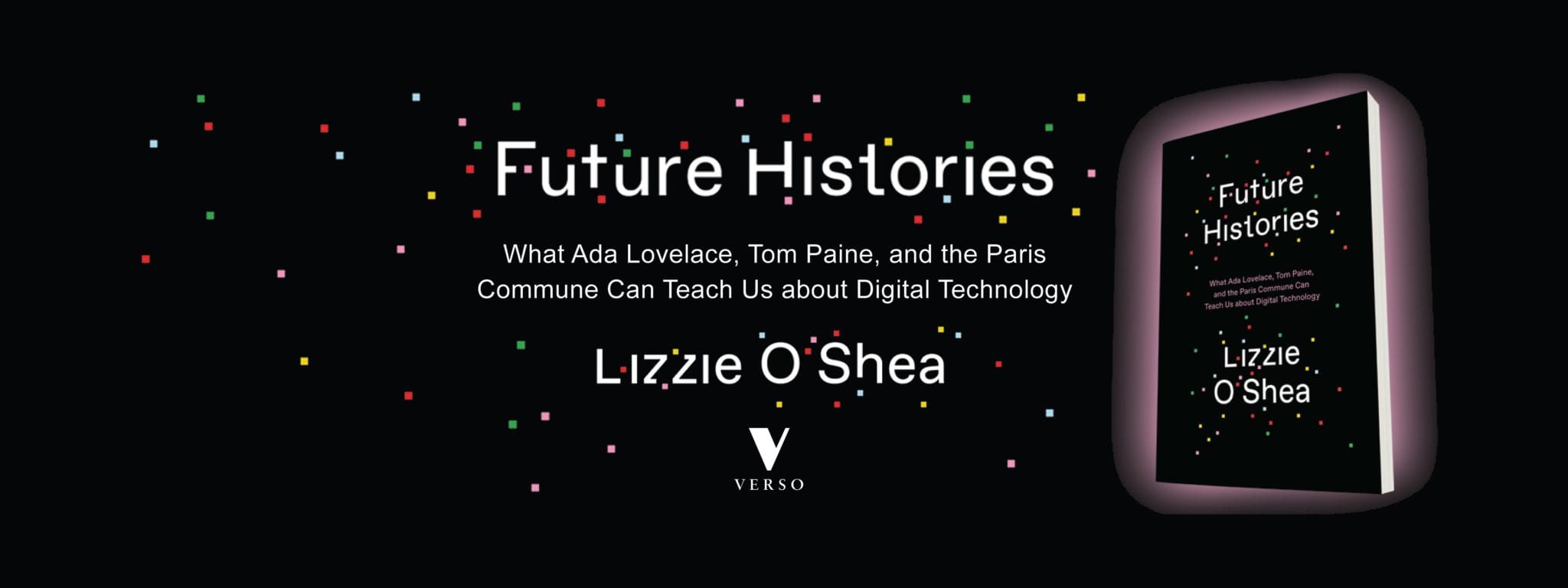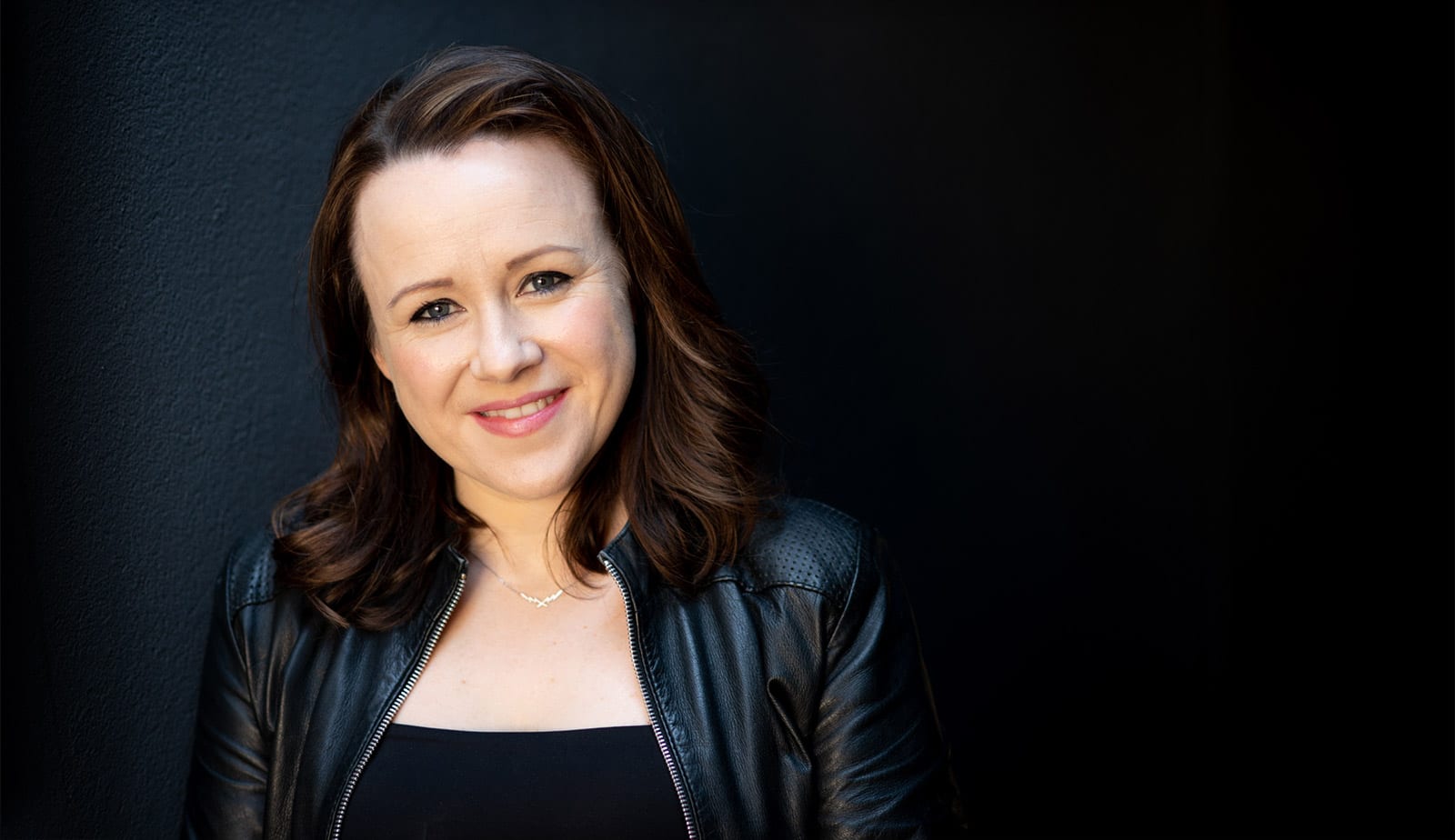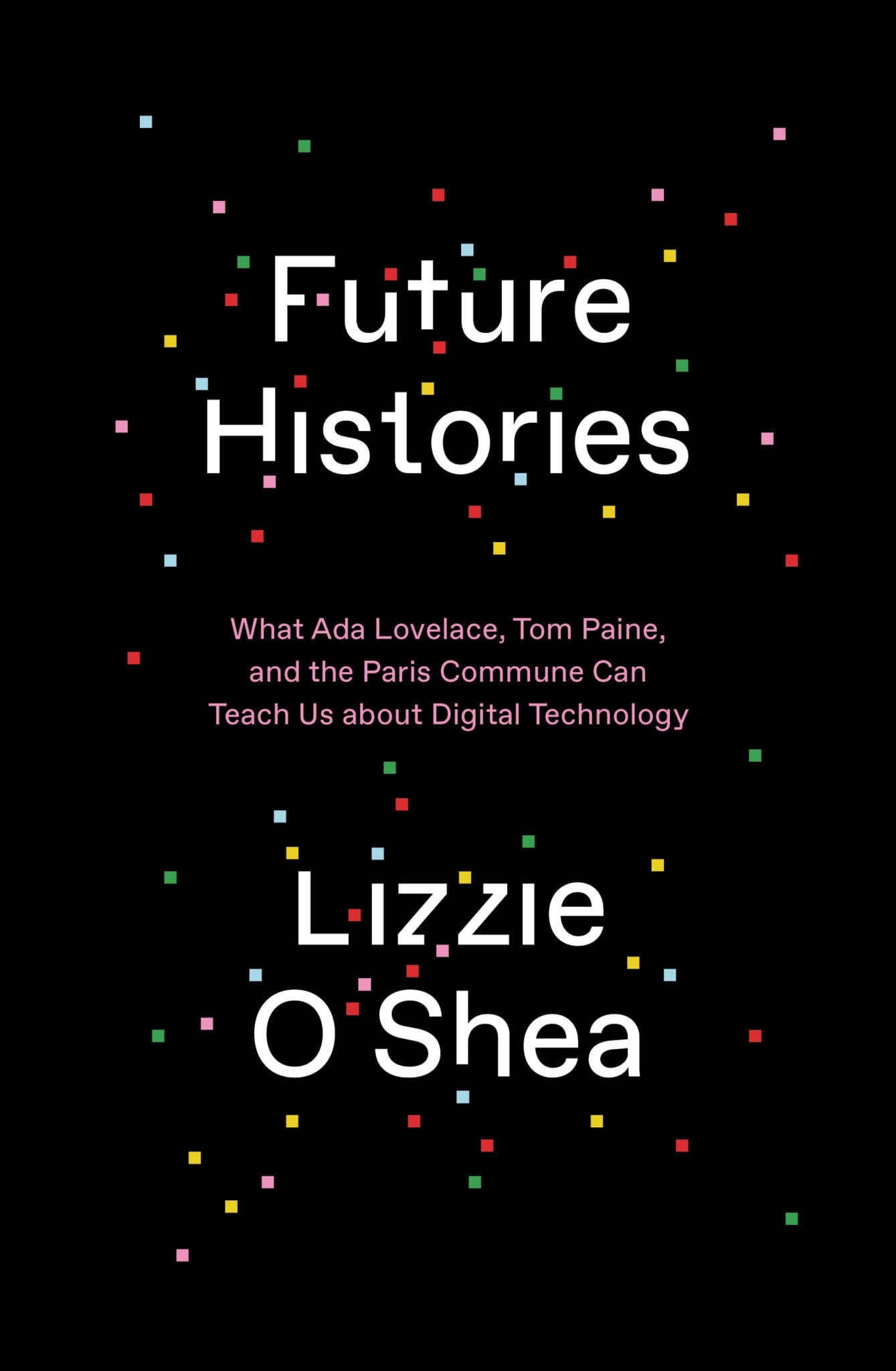
By Jeremy Wang-Iverson
Writer, lawyer and activist Lizzie O’Shea, who lives in Melbourne, will visit the US later this month to discuss her recently published book Future Histories. In shortlisting Future Histories for the prestigious Victorian Premier’s Literary Awards in Australia, the judges called the book “an intellectual kaleidoscope that sits effortlessly at the crossroads between investigation, history and radical philosophy.” Dates and locations for O’Shea’s tour are below. She also answered a few questions for us on the importance of encryption, what we can to protect our digital rights, and the class divide in how we experience technology.
1/24 Los Angeles Honor Fraser Gallery (with Sam Dean)
1/29 San Francisco Green Apple Books
1/30 San Francisco Mechanics’ Institute Library (with Wendy Liu)
1/31 San Francisco Another Tech Industry is Possible (SF DSA)
2/4 New York City The Strand (with Alex Press and Meredith Whittaker)
2/5 New York City The New School (Institute for the Cooperative Digital Economy)
2/6 Washington D.C. Solid State (with Andrea Peterson)
In recent months, US Attorney General Bill Barr, with support from the UK and Australia, has been pushing Facebook to stop using end-to-end encryption in their messaging apps, claiming it could prevent law enforcement agencies from protecting against illegal activity conducted through them, including child sexual exploitation, terrorism, and election meddling. Could you talk about the dangers of going down this road in the name of public safety?
Encryption has increasingly become standard in digital messaging and communication tools, in the wake of the Snowden revelations. In the book, I track the history of modern policing as a way of understanding why surveillance is such an enormous feature of the digital age. Western liberal democracies are often contrasted with authoritarian regimes in places like China, but the reality is that we have a long history of seeking to manage social division through surveillance, and this is accelerating as technology allows law enforcement and intelligence agencies greater power than ever before. My claim in the book is that we need to approach this political moment with a more sophisticated understanding of privacy and public safety, so we better understand the power dynamics at play, and in doing so, can organise to change them.
One of the few protections we have against such snooping is encryption. When applied to messages, it means that the communication cannot be intercepted and read by someone other than the intended recipient.
My claim in the book is that we need to approach this political moment with a more sophisticated understanding of privacy and public safety, so we better understand the power dynamics at play, and in doing so, can organise to change them.
 But encryption is not just about privacy, it is also about security. All sorts of infrastructure, like mass transit, the electricity grid, health systems, rely on digital communications. If those systems are not protected – and encryption is pretty much the only way we can protect such messages as they travel – then they can be intercepted and manipulated by parties with ill intent.
But encryption is not just about privacy, it is also about security. All sorts of infrastructure, like mass transit, the electricity grid, health systems, rely on digital communications. If those systems are not protected – and encryption is pretty much the only way we can protect such messages as they travel – then they can be intercepted and manipulated by parties with ill intent.
The point is one that Snowden himself has made: we don’t need to give up privacy to enjoy security, quite the opposite, they are complementary. When our messages are more private because they are protected by encryption, then our system is also more secure against external risks.
This is not how state agencies want you to think about the problem. This is why they talk about child sexual exploitation and terrorism – some of the worst crimes we can imagine – to justify their program to stop encryption, or break it when they so desire. They want to prioritise their own interests above those they seek to represent, and they put us at risk when they do so.
In the book you mention data scientist Cathy O’Neil’s observation that machines’ decision-making is more likely to be imposed upon poor people, as it is cheap and efficient, while ‘the privileged are processed more by people.’ Could you expand on the difference between the privileged person’s experience of technology and the regular person’s in terms of decision-making?
There is a common trope that people don’t care about their privacy because they consent to it being violated all the time. I think this fundamentally misunderstand our political moment. It’s not that poor people are stupid or gormless, it’s that an entire economy has evolved around exploiting their online lives, like a parasitic vine choking the tropical ecosystem of human experience. Numerous predatory industries, such as gambling and payday lending, shell out big dollars to place targeted advertisements before segmented audiences. They play on some of the most powerful forces in our psychology—shame, desire, guilt—for the purpose of making money. The base drivers of capitalism strip away the complexities of our personalities and pulp them in the name of consumerism. They redefine our personal history, rendering it into data to be consumed by others, framed around our inclinations to buy. It represents a coup on our consciousness; a takeover of the parts of us that we instinctively believe ought to be under our control.
[Also see Lizzie O’Shea’s recent piece in Jacobin from 12/1/19]
Law, technology and politics are all fields that require our attention if we are to make the digital future more democratic. Find what you are good at and push.
What are some of the things people outside of the world of tech and government can do to help control how the digital revolution unfolds? In other words, what could we do at home right now?
One thing everyone can do is get organised. If you are a tech worker, you could try organising your workplace. If you are a worker in a non-profit, you could ask questions about your organisation’s digital security and the digital security of the people you serve. You could find your local digital rights organisation and offer to help out. The eight-hour day movement, arguably the most successful social movement in human history, started when workers went on strike. Radical and progressive social change often starts at the margins and from below. We need to build a movement that can reclaim our digitals life from corporations and governments, which is every bit as simple and complicated as it sounds.
 Of course, there are technical things you can do, like use open source software, using a VPN, using encrypted messaging services. You can download an ad blocker and Facebook Purity, which will make you both safer and happier. You can try to break your reliance on private social media platforms, and practice linking away from them whenever you can.
Of course, there are technical things you can do, like use open source software, using a VPN, using encrypted messaging services. You can download an ad blocker and Facebook Purity, which will make you both safer and happier. You can try to break your reliance on private social media platforms, and practice linking away from them whenever you can.
We can also advocate for better laws that make companies accountable for the quality of the products they sell. There is a full chapter in my book talking about the campaign to make cars safer, including the work done by the consumer lawyer Ralph Nader. The laws he advocated for have saved millions of lives by forcing manufactures to make their cars safer, and stop them from blaming the driver for design flaws. We can run a similar campaign today, which holds companies to account when they design products with the philosophy of ‘move fast and break things’ through well designed laws.
Law, technology and politics are all fields that require our attention if we are to make the digital future more democratic. Find what you are good at and push.
Lizzie O’Shea is a lawyer, writer, and broadcaster. She is regularly featured on national television programs and radio to comment on law, digital technology, corporate responsibility, and human rights, and her writing has appeared in the New York Times, Guardian, and Sydney Morning Herald, among others. A board member at Digital Rights Watch, O’Shea recently accepted the Human Rights Hero Award for her work campaigning for encryption protection in Australia.
